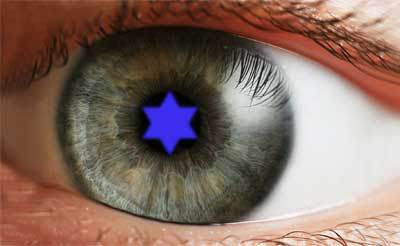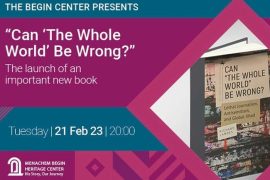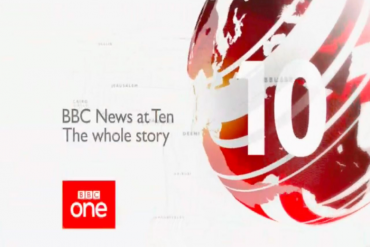In carrying out this blog’s mission, we often attempt to contextualize Guardian/UK media coverage of Israel and the Jewish world by explaining not only what they get wrong, but also why they get it wrong.
 Tablet Magazine just published a long and extremely important article (by former AP correspondent Matti Friedman) which masterfully dissects such institutional bias against Israel – in the broader Western media – and we strongly encourage those who’ve thought seriously about the subject to read the 4,000 word essay in full.
Tablet Magazine just published a long and extremely important article (by former AP correspondent Matti Friedman) which masterfully dissects such institutional bias against Israel – in the broader Western media – and we strongly encourage those who’ve thought seriously about the subject to read the 4,000 word essay in full.
Here are some excerpts:
Intro:
The lasting importance of this summer’s war, I believe, doesn’t lie in the war itself. It lies instead in the way the war has been described and responded to abroad, and the way this has laid bare the resurgence of an old, twisted pattern of thought and its migration from the margins to the mainstream of Western discourse—namely, a hostile obsession with Jews. The key to understanding this resurgence is not to be found among jihadi webmasters, basement conspiracy theorists, or radical activists. It is instead to be found first among the educated and respectable people who populate the international news industry;
How Important Is the Israel Story?
Staffing is the best measure of the importance of a story to a particular news organization. When I was a correspondent at the AP, the agency had more than 40 staffers covering Israel and the Palestinian territories. That was significantly more news staff than the AP had in China, Russia, or India, or in all of the 50 countries of sub-Saharan Africa combined.
To offer a sense of scale: Before the outbreak of the civil war in Syria, the permanent AP presence in that country consisted of a single regime-approved stringer. The AP’s editors believed, that is, that Syria’s importance was less than one-40th that of Israel.
What Is Important About the Israel Story, and What Is Not
A reporter working in the international press corps here understands quickly that what is important in the Israel-Palestinian story is Israel. If you follow mainstream coverage, you will find nearly no real analysis of Palestinian society or ideologies, profiles of armed Palestinian groups, or investigation of Palestinian government. Palestinians are not taken seriously as agents of their own fate…
Israeli actions are analyzed and criticized, and every flaw in Israeli society is aggressively reported. In one seven-week period, from Nov. 8 to Dec. 16, 2011, I…counted 27 separate articles, an average of a story every two days….this seven-week tally was higher than the total number of significantly critical stories about Palestinian government and society, including the totalitarian Islamists of Hamas, that our bureau had published in the preceding three years.
The Hamas charter, for example, calls not just for Israel’s destruction but for the murder of Jews and blames Jews for engineering the French and Russian revolutions and both world wars; the charter was never mentioned in print when I was at the AP…
What Else “Isn’t” Important?
In early 2009..two colleagues of mine obtained information that Israeli Prime Minister Ehud Olmert had made a significant peace offer to the Palestinian Authority several months earlier, and that the Palestinians had deemed it insufficient. This had not been reported yet and it was—or should have been—one of the biggest stories of the year. The reporters obtained confirmation from both sides and one even saw a map, but the top editors at the bureau decided that they would not publish the story….
This decision taught me a lesson that should be clear to consumers of the Israel story: Many of the people deciding what you will read and see from here view their role not as explanatory but as political. Coverage is a weapon to be placed at the disposal of the side they like.
How Is the Israel Story Framed?
The Israel story is framed in the same terms that have been in use since the early 1990s—the quest for a “two-state solution.” It is accepted that the conflict is “Israeli-Palestinian,” meaning that it is a conflict taking place on land that Israel controls—0.2 percent of the Arab world—in which Jews are a majority and Arabs a minority. The conflict is more accurately described as “Israel-Arab,” or “Jewish-Arab”—that is, a conflict between the 6 million Jews of Israel and 300 million Arabs in surrounding countries…
The “Israeli-Palestinian” framing allows the Jews, a tiny minority in the Middle East, to be depicted as the stronger party…
The Old Blank Screen
For centuries, stateless Jews played the role of a lightning rod for ill will among the majority population. They were a symbol of things that were wrong. Did you want to make the point that greed was bad? Jews were greedy. Cowardice? Jews were cowardly. Were you a Communist? Jews were capitalists. Were you a capitalist? In that case, Jews were Communists. Moral failure was the essential trait of the Jew…
Like many Jews who grew up late in the 20th century in friendly Western cities, I dismissed such ideas as the feverish memories of my grandparents. One thing I have learned…is that I was foolish to have done so. Today, people in the West tend to believe the ills of the age are racism, colonialism, and militarism. The world’s only Jewish country has done less harm than most countries on earth, and more good—and yet when people went looking for a country that would symbolize the sins of our new post-colonial, post-militaristic, post-ethnic dream-world, the country they chose was this one.
Who Cares If the World Gets the Israel Story Wrong?
Understanding what happened in Gaza this summer…requires us to understand what is clear to nearly everyone in the Middle East: The ascendant force in our part of the world is not democracy or modernity. It is rather an empowered strain of Islam that assumes different and sometimes conflicting forms, and that is willing to employ extreme violence in a quest to unite the region under its control and confront the West. Those who grasp this fact will be able to look around and connect the dots…
Israel is not an idea, a symbol of good or evil, or a litmus test for liberal opinion at dinner parties. It is a small country in a scary part of the world that is getting scarier. It should be reported as critically as any other place, and understood in context and in proportion.




